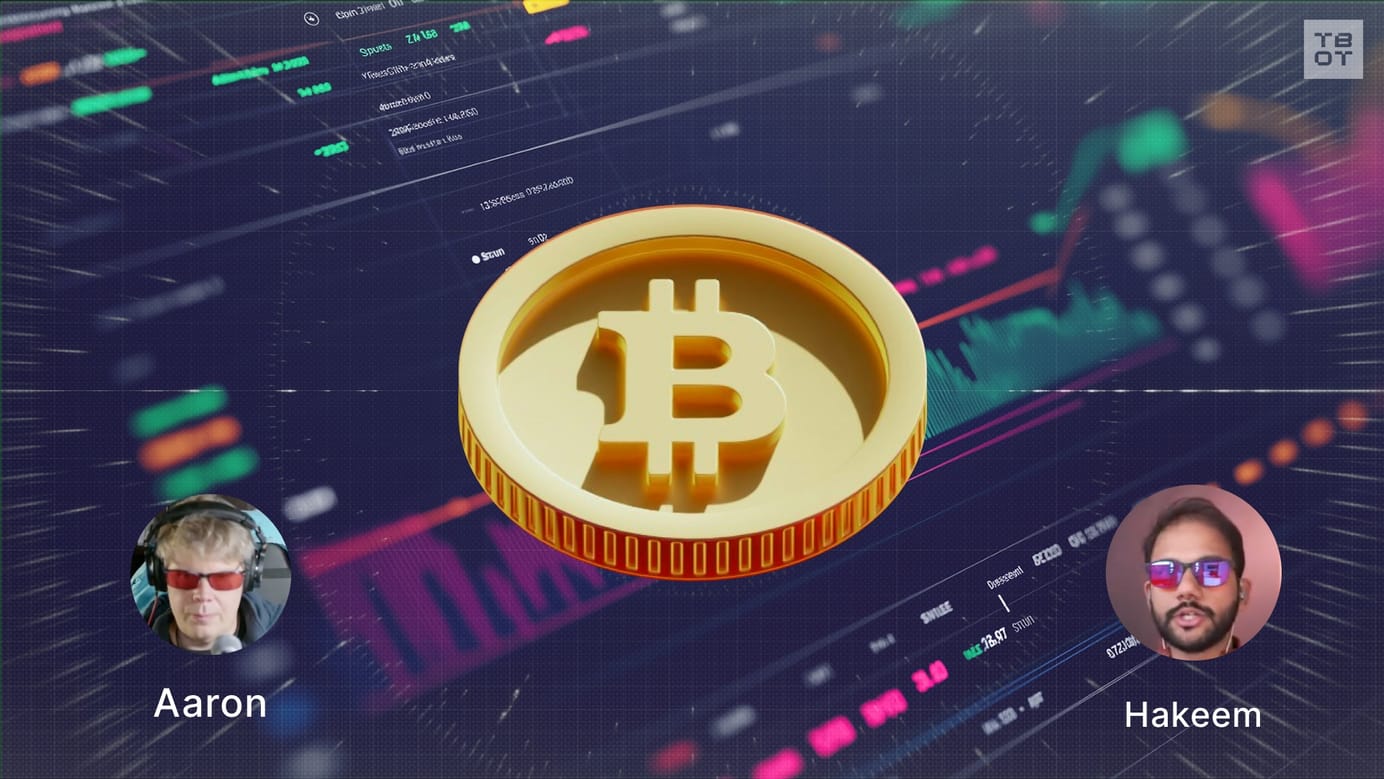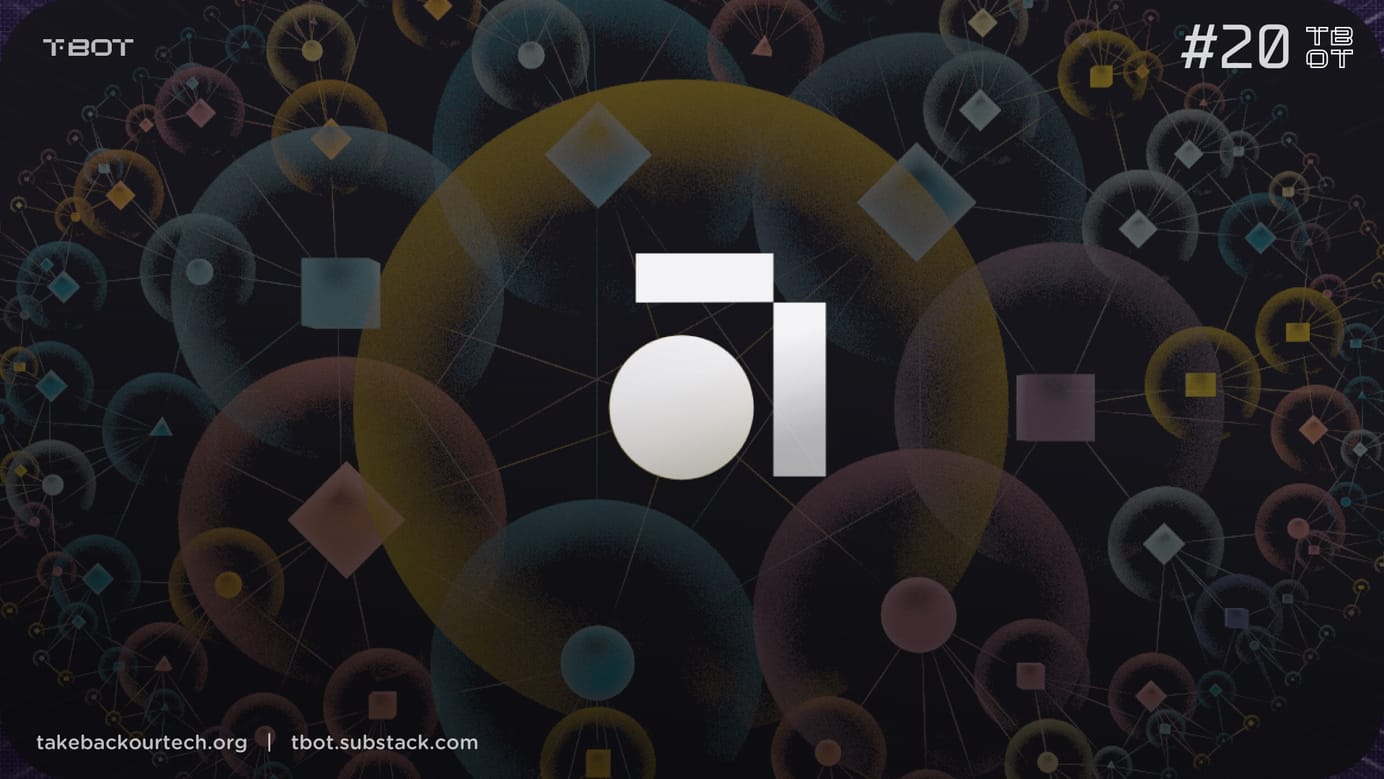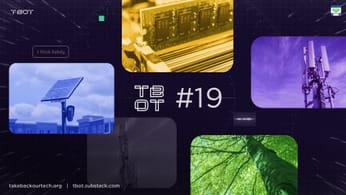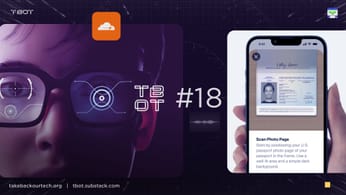
21-year-old Inventor of “Plastoline” Fears for His Safety
Would you put Plastoline in your car?
Julian Brown is the 21-year-old backyard inventor of Plastoline. Starting in his backyard, he created an end-to-end process that turns plastic into fuel, gaining 1.8M followers on Instagram in the process.
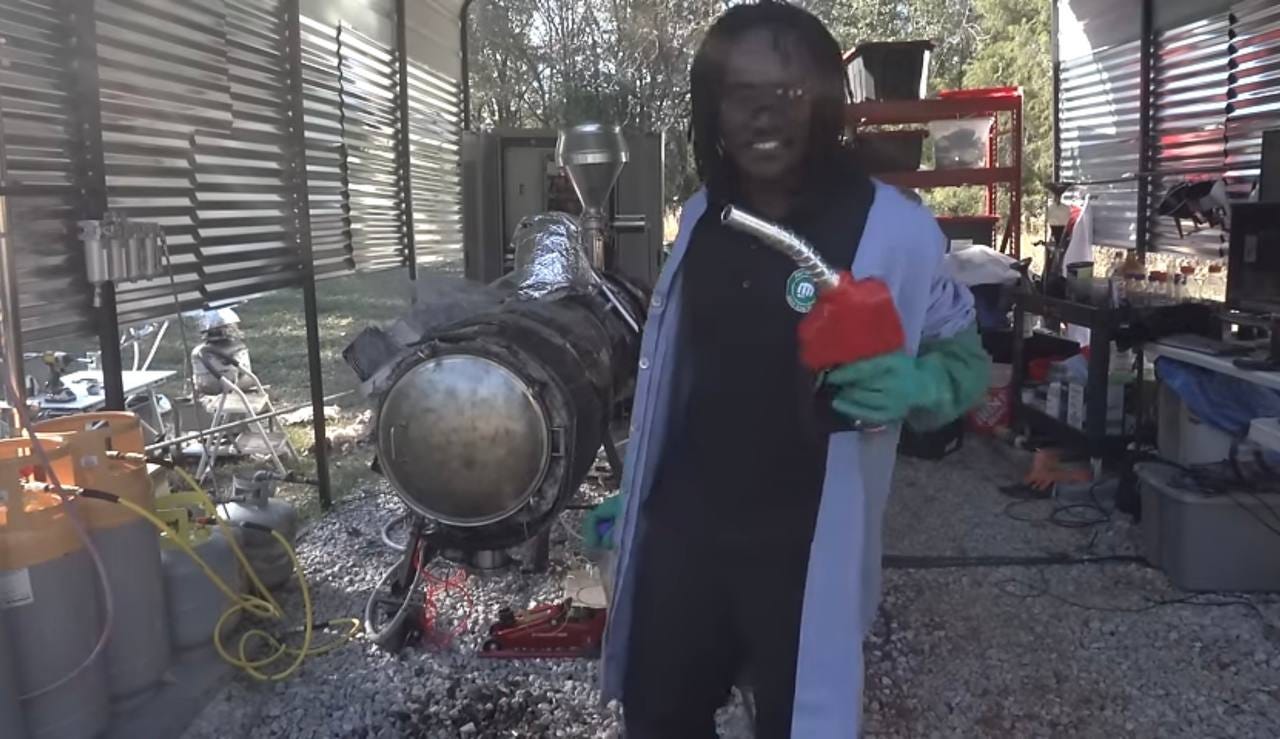
I watched the process on his YouTube channel.
- Take your plastics and grind them into paper mache.
- Then put them into a giant pyrolysis microwave reactor.
- Take the unrefined oil and distill it in a tower to refine it—the lightest gas comes out of the top.
- You’ve got your Plastoline!
In his backyard, Julian spent 3 days making 3 gallons of distilled Plastoline. However, due to problems in his rough distillation setup, he couldn’t refine his goal of 5 gallons.
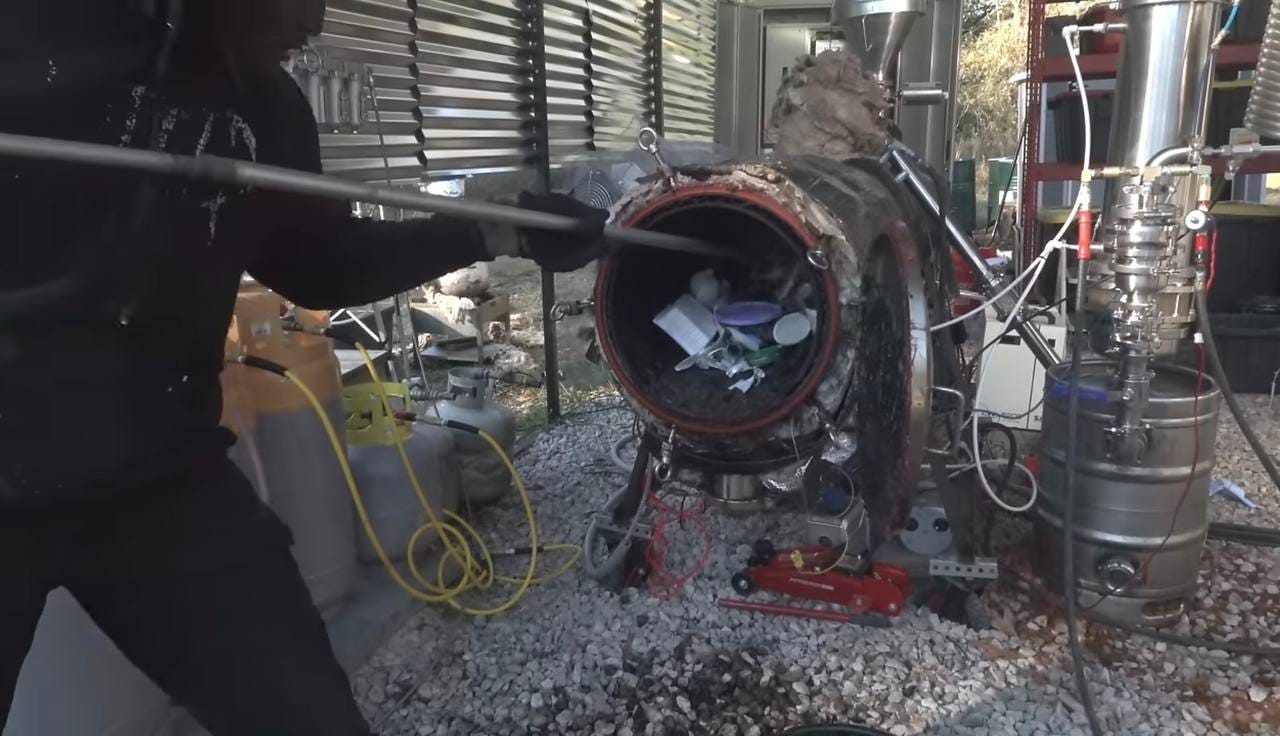
Back in July, Julian released a video saying he was under attack, that odd things were happening, and he asked viewers to pray for him. Shortly after, Julian went silent.
It turns out, he had gone into hiding—scared for his safety. His mom also commented on his posts saying he was okay, but for his own safety she couldn’t give many details.
But now, Julian is back. He’s safe, and he’s started releasing new content again.
Earlier in 2024, Julian sent samples of his Plastoline to Ben Katz, a mass spec specialist from UC Berkeley. Katz discovered using his mass spec equipment that the Plastoline contained high amounts of hazardous compounds, including toluene, ethylbenzene, and styrene.
Styrene is a compound used to make plastic and rubber, which is extremely toxic.
So unfortunately, this process isn’t a simple backyard experiment. In order to make something worth using, there needs to be time spent analyzing each blend of plastic to see if your fuels minimize hazardous compounds.
And there needs to be a full understanding of the chemistry behind it in order to make the reactions more efficient, which would avoid the countless problems that Julian has faced in his process.
There are mixed feelings about Julian and his work online. While people love his energy and determination, others say he’s a danger to himself and to others.
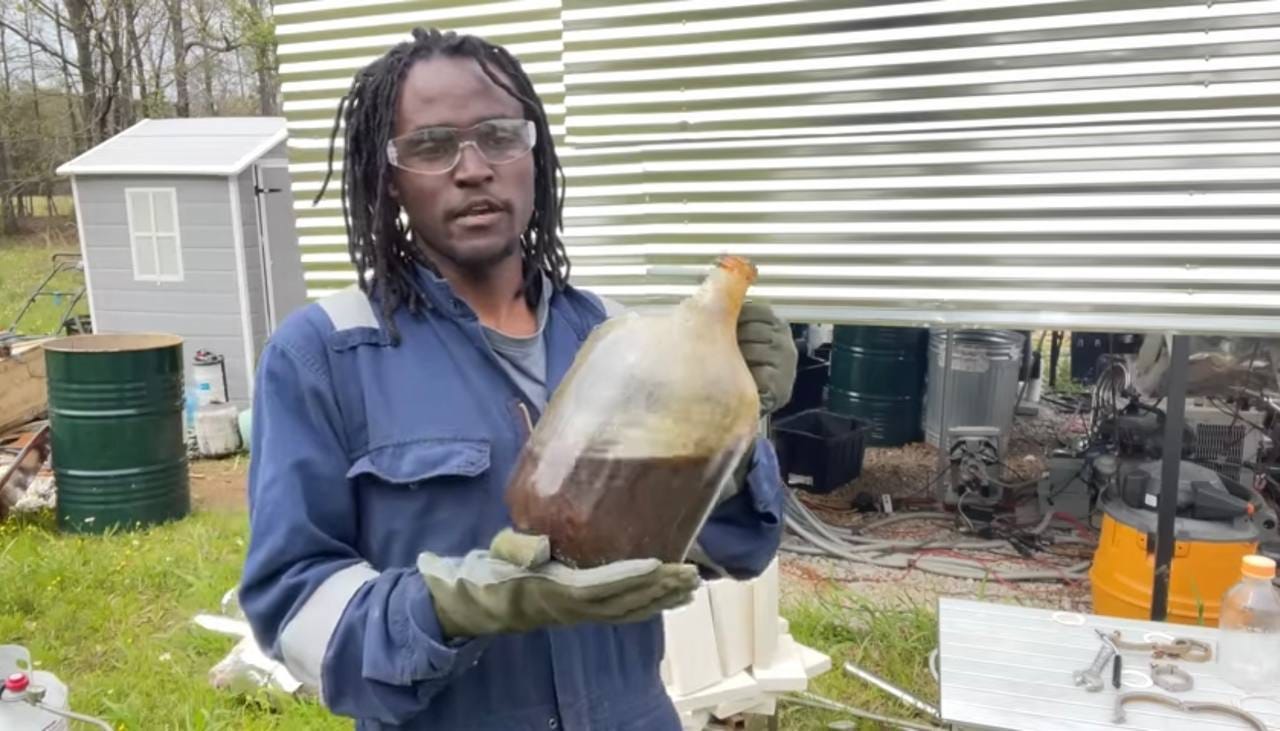
But one thing is certain—if a young man in his backyard can create fuel from plastic (even if it is toxic), then big corporations should be able to innovate in this field.
The process that Julian and others use is called depolymerization. Add heat and pressure to plastics and rubbers to break up plastic’s long-chain molecules into smaller monomers that can be further refined to make fuels similar to gasoline.
It typically uses heat, pressure, and catalysts—and it’s not new.
TDP, or thermal depolymerization, was discovered in the 1970s, and was made commercial in 1997 with Changing World Technologies founded by Brian Appel.
They were the first to commercialize thermal depolymerization, which takes any organic compounds including agricultural wastes like fats, oils, greases, sewer sludge, and animal carasses, and turns it into diesel.
They even created a plant in Carthage, Missouri, in 2004 to process 250 tons of turkey scraps. It was later shut down after residents complained about the odor. Soon after, the company went bankrupt.
But the idea never died.
Turning plastic into fuel isn’t just a backyard experiment. Today there are many companies that are taking on the mission of turning plastics into fuel. From Clariter, which upcycles plastic into industrial clean solvents and oils, to Agilyx, which uses chemical recycling to convert polystyrene waste into styrene oil, and Plastic Energy, which runs full-scale plants turning waste into synthetic oils—the field is growing fast.
And somehow, a 21-year-old with nothing but a microwave reactor and raw determination is showing the world what’s possible—and it’s incredibly inspiring.
Should we encourage backyard science or leave it to the corporations?
What would you create if you had zero funding but unlimited time and curiosity?
Would you put Plastoline in your vehicle, knowing it was toxic?

Finally, a laptop that respects your privacy and your freedom of choice.
✅ Modern reliable hardware.
✅ A cutting-edge Linux OS that's actually easy to use.
✅ Access to more software than ever before.
❌ And best of all, no big tech tracking!
Take Back Our Tech Newsletter
Join the newsletter to receive the latest updates in your inbox.

